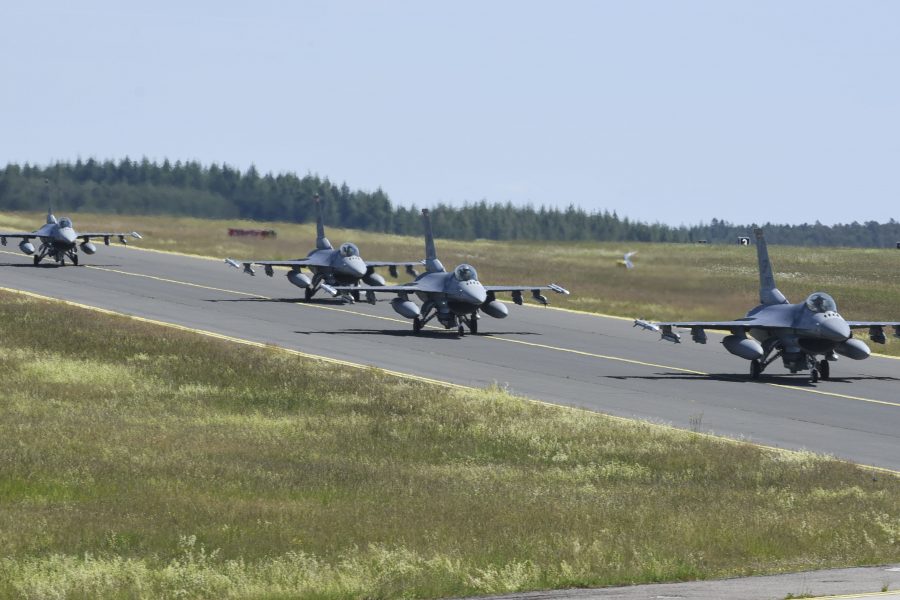Plans to significantly reduce the U.S. footprint in Germany are now on hold as the new administration reviews the decision and its impacts, the head of U.S. European Command said Feb. 3.
In July, then-Defense Secretary Mark T. Esper and EUCOM boss Gen. Tod D. Wolters announced that DOD would remove nearly 12,000 troops from Germany, shift F-16s from Spangdahlem (the base’s only flying mission), and halt plans to move tankers and special operations forces from England to Germany, among other changes. The announcement came after former President Donald J. Trump repeatedly stated his desire to reduce the U.S. footprint in Germany.
Wolters told reporters in a teleconference that planning for the moves immediately stopped once new Defense Secretary Lloyd J. Austin III took charge. Wolters would not say how far along the changes were in planning.
“There were so many pieces and parts to the plan, we could probably sit here for weeks and guess on the depth and how far along we were,” Wolters said. “But in all those cases, there were branches and sequels with multiple options. So, I will just tell you that the new administration has comfortably stated to us that we need to conduct a thorough review, cradle to grave, in all areas. And then after they’re allowed to conduct that review, we’ll go back to the drawing board.”
Austin has hinted at making changes to the plan. According to a Pentagon summary of a Jan. 28 call with German Defense Minister Annegret Kramp-Karrenbauer, Austin said Germany is a “great host for U.S. forces” and “expressed his desire for a continued dialogue on U.S. force posture in Germany.”
Wolters said the DOD review will provide a “comprehensive look at all of the options, from A to Z, and [then DOD will] take a strategic and operational examination of each and every one of those impacts.”
When the move was announced, it drew immediate criticism from lawmakers, and the fiscal 2021 National Defense Authorization Act aimed to block funding for the change until the Defense Department provided details on the timeline and justification.
Wolters would not provide a guess on what the decision would ultimately be, saying the White House will “deliver us a decision. Don’t know what that will be. … I’m a smart military member, so I want to make sure that I give my senior civilian leadership the appropriate maneuvering space to make the decision that they need to make so that we can collectively go forward in the future.”
